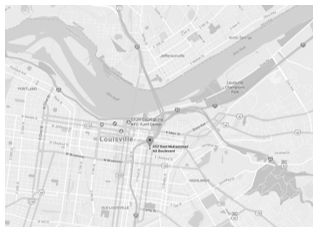APRN Specialties & Curriculum
Adult-Gerontology Acute Care Nurse Practitioner
The patient population of the adult-gerontology acute care nurse practitioner practice includes the entire spectrum of adults including adolescents, adults and aging adults. The adult–gerontology ACNP provides care to patients who are characterized as “physiologically unstable, technologically dependent, and/or are highly vulnerable to complications” (AACN Scope and Standards, 2006, p 9). These patients may be encountered across the continuum of care settings and require frequent monitoring and intervention. The role encompasses a spectrum of care ranging from disease prevention to acute and critical care management to “stabilize the patient’s condition, prevent complications, restore maximum health and/or provide palliative care” (AACN p. 10). Acute care nurse practitioners work in the intensive care unit (ICU), progressive care unit (PCU) other hospital units and specialty provider’s offices.
Program Options:
MSNPost-Graduate CertificateDNP
AGACNP Curriculum
Adult-Gerontology Primary Care Nurse Practitioner
The patient population of the adult-gerontology primary care nurse practitioner practice includes the entire spectrum of adults including adolescents, adults and aging adults. The Adult-Gero primary care nurse practitioner providers direct health care services and synthesizes theoretical, scientific, and clinical knowledge for the assessment and management of both health and illness states. An Adult-Gero NP could work in the following settings: internal medicine offices; health clinics; a specialty office; hospital rehab or a hospice unit; long term care facility; fast-track ER or adult urgent care facility.
Program Options:
MSNPost-Graduate CertificateDNP
AGPCNP Curriculum
Family Nurse Practitioner
The family nurse practitioner (FNP) is prepared to care for individuals and families across the lifespan. The FNP role includes preventative healthcare, as well as the assessment, diagnosis, and treatment of acute and chronic illness and preventative health care for individuals and families. Family nurse practitioners demonstrate a commitment to family-centered care and understand the relevance of the family’s identified community in the delivery of family-centered care. A Family NP could work in the following settings: health clinic, adult or pediatric primary care office, inpatient rehab or hospice unit, a school, fast-track ER, or urgent care facility.
Program Options:
MSNPost-Graduate CertificateDNP
FNP Curriculum
Neonatal Nurse Practitioner launch
(Part-time progression admissions will be in odd years. Full-time progression admissions is for even years.)
Neonatal nurse practitioners provide health care to neonates, infants, and children through 2 years of age. Practice as a NNP requires specialized knowledge and skills if safe, high-quality care is to be delivered to patients. The NNP role includes the assessment, diagnosis and treatment of acute and chronic illness in neonate.
Program Options:
MSNPost-Graduate CertificateDNP
NNP Curriculum
Nurse Anesthesia launch
The Nurse Anesthetist is educationally prepared to provide safe, competent, and ethical anesthesia and anesthesia-related care to patients across the lifespan for diagnostic, therapeutic, and surgical procedures (Standards for Accreditation, 2021, p.47). Nurse Anesthetists have acquired a minimum of a doctorate degree focusing on anesthesia, have completed extensive clinical training, and have passed a certification exam approved by the National Boards of Certification and Recertification of Nurse Anesthetists (NBCRNA). A Nurse Anesthetist can be found practicing in every setting in which anesthesia is delivered: traditional hospital surgical suites and obstetrical delivery rooms; critical access hospitals; ambulatory surgical centers; the offices of dentists, ophthalmologists, plastic surgeons, and pain management specialists.
Program Options:
Nurse Anesthesia Curriculum
Pediatric Acute Care Nurse Practitioner
(Part-time progression admissions will be in odd years. Full-time progression admissions are for even years.)
The Pediatric Acute Care Nurse Practitioner (PAC-NP) is educationally prepared to provide advanced nursing care to meet the specialized needs of infants, children, adolescents, and young adults with complex acute, critical, and chronic health conditions, including the delivery of acute care services, as delineated in the acute care nurse practitioner competencies (2004). PAC-NP can be found working in areas such as hospital-based pediatric acute care areas, pediatric intensive care units, pediatric cardiac intensive care units, emergency departments, and pediatric specialty practices that manage acutely ill patients across the spectrum of care settings from outpatient, to inpatient, and through discharge.
Program Options:
MSNPost-Graduate CertificateDNP
PACNP Curriculum
Psychiatric Mental Health Nurse Practitioner
The PMHNP focuses on individuals across the lifespan, families, and populations across the lifespan at risk for developing and/or having a diagnosis of psychiatric disorders or mental health problems. The PMHNP provides primary mental health care to patients seeking mental health services in a wide range of settings. Primary mental health care provided by the PMHNP involves relationship-based, continuous and comprehensive services, necessary for the promotion of optimal mental health, prevention, and treatment of psychiatric disorders and health maintenance. This includes assessment, diagnosis, and management of mental health and psychiatric disorders across the lifespan.
Program Options:
MSNPost-Graduate CertificateDNP
PMHNP Curriculum
Not sure which specialty to pursue? Click on the link for more information on choosing a specialty.
